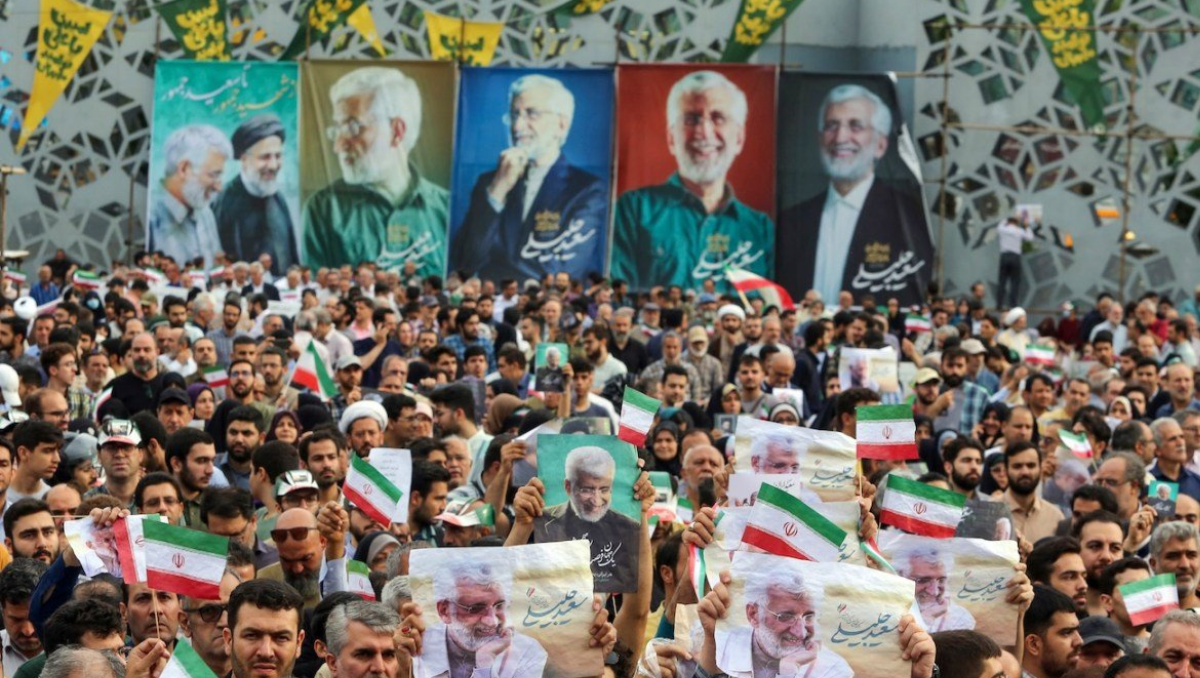Table of Contents
A contest of Khamenei’s chosen few
Iran prepares to elect a new President on Friday in a tightly controlled election following Ebrahim Raisi’s death in a helicopter crash last month. With Supreme Leader Ayatollah Ali Khamenei now 85 years old, the next president is expected to play a crucial role in the Supreme Leader’s eventual succession process. The field of candidates reflects Khamenei’s tight control over the process. This careful selection ensures that the next president will share his anti-Western views and hardline stance on key issues.
Tight contest among conservatives
The Guardian Council, Khamenei’s hardline vetting body, has approved only six candidates from an initial pool of 80, with five hardliners and one low-profile reformist in the running. Comprised of clerics and jurists loyal to Khamenei, the Council has effectively limited voters’ choices to candidates who will maintain the status quo and resist any significant political or social reforms.
Recent polls in Iran suggest a closely contested three-way race for the presidency, with conservative candidates dominating the field. Prominent approved candidates include Mohammad Baqer Qalibaf, the parliament speaker and former Revolutionary Guards head, and Saeed Jalili, a former nuclear negotiator, both staunch Khamenei loyalists.
The state-linked Iranian Students Polling Agency (ISPA) and Meta, a polling centre based at Tehran’s Imam Sadeq University, both indicate a tight competition between Qalibaf and Jalili. The relatively moderate Masoud Pezeshkian has shown a slight lead in some surveys, but the margins remain narrow, with Qalibaf and Jalili close behind.
Dissent and repression shadow
The upcoming elections unfold against a backdrop of recent unrest and government crackdowns that have deepened societal divisions. The 2022 protests sparked by Mahsa Amini’s death in police custody exposed rifts between reformists and hardliners, with the government’s harsh response resulting in hundreds of reported deaths and thousands of arrests. This climate of repression has fueled calls from dissidents both within Iran and abroad for an election boycott, arguing that participation legitimises the regime.
However, prominent reformists warn that low turnout will only strengthen hardline control over state institutions. Low participation could benefit hardline candidates, who have historically performed well in elections with reduced voter engagement. Nobel laureate Narges Mohammadi, currently imprisoned, denounced the election as a “sham” designed to reinforce tyranny rather than uphold democratic rights
Khamenei calls for high turnout
Voter turnout has become a central issue, with projections hovering around 50% – a slight increase from the record-low 48.8% participation in 2021. Supreme Leader Khamenei has called for “maximum” turnout, framing high participation as a way to “silence the Islamic Republic’s enemies”. His adviser, Yahya Rahim Safavi, echoed this sentiment, urging voters to elect “a president whose views do not conflict with those of the supreme leader”.
Limited prospects for reform
There is a palpable sense of resignation among the country’s youth and reformist factions. With candidates heavily vetted by the Guardian Council and closely aligned with Khamenei’s anti-Western stance, hopes for significant change appear dim. The election offers little promise of easing social restrictions, improving relations with the West, or addressing economic woes that have fueled recent protests.
Ultimately, the real power in Iran continues to rest firmly with the 85-year-old Khamenei, not the elected president, leaving many to question the true impact of their vote on the nation’s trajectory. As Mohammadi noted from Tehran’s Evin prison, the election seems more a tool to “reinforce power and tyranny” than to uphold democratic principles.

1 Comment
Pingback: A Special Presidential Election in Iran: Transparency, candidates and the impact - INPAC Timesa-special-election is being held to replace the late president